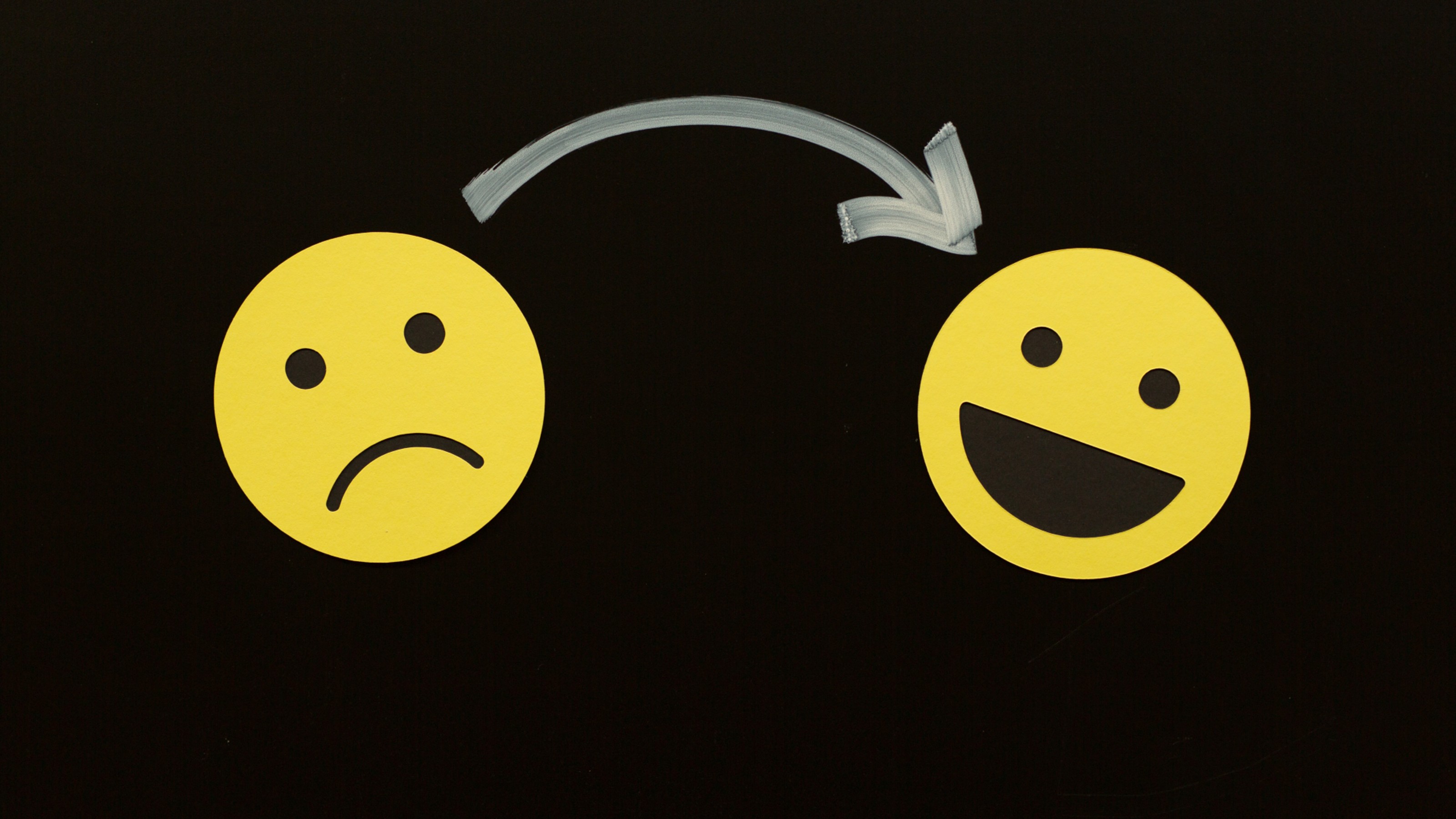Happiness relies greatly on social connectedness, but sites like Facebook don’t necessarily make us happier.
Question: Happiness relies in part on social connectedness, so is Facebook making us happier?
Shawn Achor: I think that social support is one of the most important things in terms of predicting a happiness level, but is one of the most misunderstood as well. I think brilliant people sometimes do the most unintelligent thing possible. As I watch these Fortune 500 companies, or these executives who are Harvard students, when they get stressed, oftentimes they decide that they’re so stressed that they need to work as hard as they possibly can to get over that. So they divorce themselves from their social support network.
Or if you’re at work and you find that you have too much on your plate, you’re feeling stressed, so you stop eating lunch with your friends. You start eating lunch at your desk, or you stop spending time with your family and friends. You stop doing things in the evenings because you’re tired. And what we find is those individuals not only do they feel more tired, they feel more depressed, they get less work done and they feel more and more overwhelmed. The reason is because our brains thrive in the midst of social support. In fact, the top performers are the ones who actually invest in their social support network instead of divesting from it in the midst of stress.
It’s what I call in my book, “The Social Investment.” It’s a period where individuals seem to do the opposite of what you’d expect in the period of challenge. Thinks like Facebook, things like Twitter, things that try and connect can be helpful, but with a caveat to it. We know that if an individual creates a lot of social networks, but doesn’t actually meet up with any of those individuals, they’re not getting of the activation in their brain around parts, like the mirror neurons, which increase levels of empathy and increase our feelings that we have social support.
So if you spend all your time on Facebook, but never actually meet up with them in person, we find that being on Facebook doesn’t seem to have any effect on your social support, in fact, it probably decreases over time. But, if you use those social networking sites, like Facebook to find out more things about those individuals so that you do meet up with them, your social support actual rises. So I’d say it’s how we use the technology instead of how the technology is affecting us.
The other thing that we find interesting is that if you take time to Facebook or to email people, but you consider it to be a waste of time, something you’re just doing to procrastinate, we find that it doesn’t have any rejuvenating benefits to you. You finish that activity and you feel less happy and with less energy. But if you see being on Facebook as something that’s exciting, something that’s connecting you to other people, that’s helping you grow your social support network, or you see the email as something that is valuable, instead of something that’s just taking away time or that is a pastime that doesn’t have any impact, we find that not only does it rejuvenate the system, it actually causes your success rates to rise. Because what we’re finding is that social support is the greatest predictor of success in happiness during a time of challenge. Every time I test this at companies, we test all these different metrics. We try optimism, stress levels, number of years of experience, resources, every single time that we’ve tested this we’ve found that social support is the greatest predictor of your happiness and success. In fact the correlation is .7, which is even higher than the correlation between smoking and cancer.
Question: What parts of our brains are involved with happiness?
Shawn Achor: So the focus of my research is on how when an individual is positive it raises not only the success for that individual, but for the entire team and organization, which is why much of the work that I’m doing is out in organizations, Fortune 500 companies.
And what we’ve found that's remarkable about happiness, and unhappiness as well, is how it spreads through an organization. Now we’ve seen this happen before. We know that positivity and negativity can spread very quickly, like wildfire. The interesting thing is, what we found inside the human brain that explains this. What we found are these small little parts of your brain called mirror neurons. Mirror, like what you look at in the morning and neuron, like a small part of the brain. These mirror neurons are the reason for; they’re the mechanism for that spreading or that contagion that we can see. So for example, if I put myself into a brain scan and start to smile, part of my brain lights up and says, “Shawn, you’re smiling.” And that’s not that interesting, but if I’m in that brain scan trying not to smile and somebody is smiling at me and I see them in my visual field, these small parts of your brain called mirror neurons light up and they say, “Shawn, you’re smiling.” But I’m not smiling, you’re smiling. But before I can stop myself, my brain drops a chemical called dopamine, which raises my levels of happiness and my levels of enjoyment and my face starts to contort into a smile before I can stop myself.
These mirror neurons are the reason why a yawns spread at board meetings. Where one person yawns, you see other people yawn; it spreads like wildfire throughout the group. The reason is, your brain, when you see something in your visual field, raises the likelihood of your experience in that as well. And that can be great news if you’re surrounded by positive individuals, if you have positive leaders, but what we’re finding a lot of the times is that a lot of the people that are working in companies are working next to people who are... who we term as “toxic employees.” Or they’re getting a whole spate of negative economic or market news. And when this happens, what we find is that even if a person is an optimistic leader, when they’re surrounded by so much negativity in the media or from the market data they’re receiving or the people around them, their brains raise the likelihood of them starting to feel stressed and unhappy as well. What we’ve seen is that this can spread very quickly. You can have one person on the room that is very expressive of their negativity and stress and it can spread to the entire team.
But the interesting part is because we all have these mirror neurons, that actually gives us extraordinary amounts of power as leaders and as individuals on a team because not only does everybody have these mirror neurons, but it means we are soft-wired for a connection of empathy. So if I raise up my levels of happiness by training my brain to become more positive, doing many of the things that my book, "The Happiness Advantage," that raise the levels of happiness and the levels of productivity, that doesn’t stop with just the individual, that spreads out to the team because people around you are actually starting to pick up on that as well.
So what we need to find a way to do is to buffer our brains against the negative impacts of media or the information that we’re receiving or the people around us so that we can create a one-way street, using our brain as an advantage of rippling that happiness advantage out to other people.
Recorded September 9, 2010
Interviewed by Max Miller





